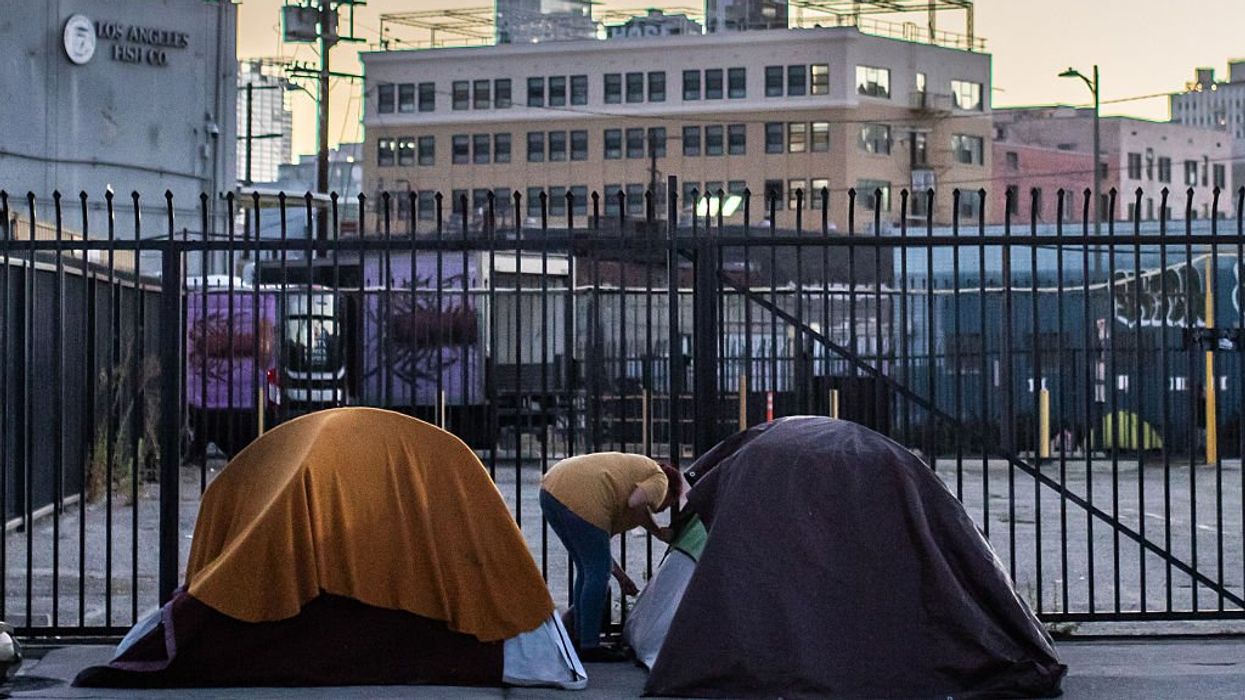In late July, President Trump signed an executive order urging local authorities to find ways to force homeless individuals with mental illness into hospitals. On its face, some observers might find this move appealing. Homelessness has skyrocketed across American cities, generating headlines about homeless encampment waste and public substance use. And mental health care, which many of these individuals need, is difficult to access—and arguably easier to obtain in a hospital. But Trump’s order may in fact undermine its own aims.
Research shows that psychiatric hospitalization has little impact on “Crime and Disorder on America’s Streets,” as the executive order puts it, and which it purports to address. Instead, while the order and other Trump Administration policies may remove homelessness from public view, they neither house nor heal those suffering from it.
In a cross-national study, for example, one of us found that levels of institutionalization were unrelated to mass shooting events. In fact, people experiencing homelessness are more likely to be victims of violent crimes than perpetrators, including assault and sexual violence. If Trump is concerned about violence caused by homeless individuals, it’s unlikely that hospitalizing them will reduce it.
Moreover, the executive order advances measures that can make homelessness worse and only superficially address mental health. These measures include criminalizing homelessness, such as arresting or fining people for sleeping in public, even when there are no shelter beds or housing available. In addition, the administration aims to defund programs that oversee the safe use of substances—which primarily focus on drug addiction and are often a primary contact for people with substance use disorders—while also diverting resources to mental health and drug courts, whose long-term benefits are unclear. These are Band-Aid solutions to problems that require more comprehensive attention.
What would it really take to address homelessness? For one, more and better housing, offered alongside comprehensive medical, social, and psychiatric care tailored to clients’ individual needs, and provided regardless of an individual’s sobriety, employment, or other behavior-change prerequisites. Known as the “Housing First” model, decades of research from around the world confirm that this approach is one of the most effective tools to end homelessness, particularly for people with severe mental illness, long durations of homelessness, and complex medical needs.
The executive order says the Department of Housing and Urban Development should end support for some “housing first” programs. This threatens successful housing programs and risks increasing homelessness, especially for high-risk groups. The Veterans Affairs is one example of this success: long-term investments in housing with comprehensive medical and mental health services have seen a 55% reduction in homelessness among veterans since 2010.
The federal government could also do more to help state and local governments implement Housing First policies. In a national study, one of us found that although the homelessness crisis typically occurs on public property, local governments often aren’t involved with designing or implementing the type of supportive “Housing First” policies necessary to end homelessness. Instead, those tasks are delegated to local non-profits, which may lack the authority or resources needed to create effective policies, and which often face pushback from local governments.
However, evidence shows that improving resource capacity for nonprofits helps them to better coordinate with, or even become part of, local governments in order to implement supportive Housing First policies. The federal government can play an important role here too. In 2023, for instance, the Department of Health and Human Services took steps to allow states to use Medicaid to pay for non-traditional services like housing costs and medical respite beds.
The federal government can also do more to improve access to public mental health care, the second piece of the puzzle. Over the past several decades, the United States has systematically divested from mental health care. The federal government has played an important role in incentivizing these divestments. But it could change track by eliminating major payment restrictions on inpatient mental health care, such as Medicaid’s IMD exclusion and Medicare’s 190-day lifetime cap, which limits the government funding available for inpatient mental health care. Expanding that funding would help expand needed mental health care services.
The federal government could also require state Medicaid programs to cover comprehensive mental health services and regulate insurance programs so that safety-net providers—who deliver care to low-income, homeless individuals—are reimbursed at sustainable, market rates. Such policy changes would go a long way towards expanding access to behavioral health services for these individuals, who badly need these services to maintain stable housing.
This executive order appears to be but one more blow to Americans at risk of and experiencing homelessness. Combined with the “Big Beautiful Bill’s” severe Medicaid cuts, food assistance work requirements, and expansions to military and police capacities, the executive order is more likely to penalize than to prevent homelessness and mental illness.
To tackle the root causes of homelessness, real reform will require a policy approach that treats people experiencing homelessness like humans—not trash to “clean up.”
Charley E. Willison is Assistant Professor of Public Health at Cornell University and author of Ungoverned and Out of Sight: Public Health and the Political Crisis of Homelessness in the United States.
Isabel M. Perera is Assistant Professor of Government at Cornell University and author of The Welfare Workforce : Why Mental Health Care Varies Across Affluent Democracies.



















Trump & Hegseth gave Mark Kelly a huge 2028 gift